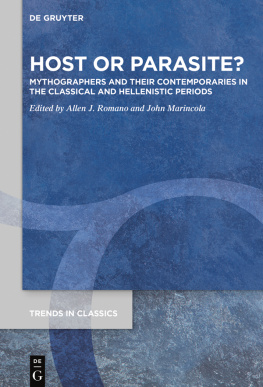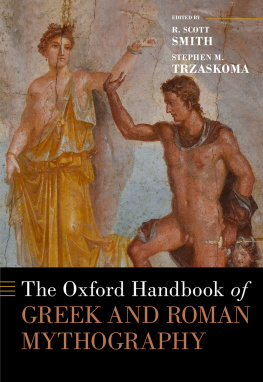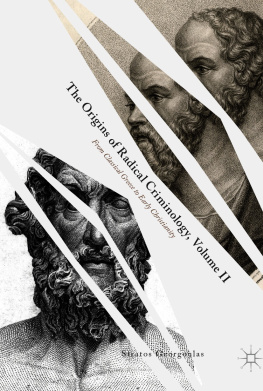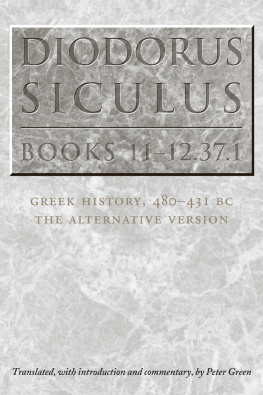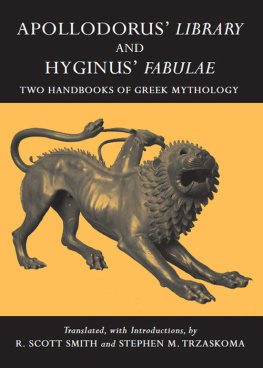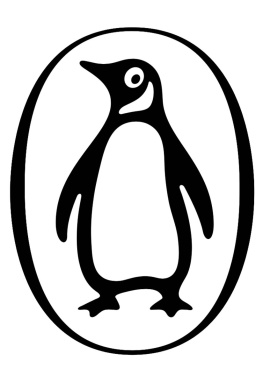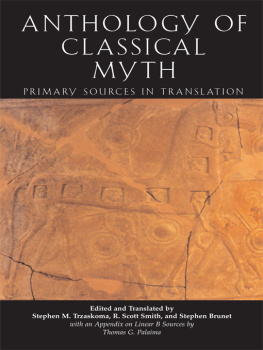Contents
Guide

Host or Parasite?
Trends in Classics Supplementary Volumes

Edited by
Franco Montanari and Antonios Rengakos
Associate Editors
Stavros Frangoulidis Fausto Montana Lara Pagani Serena Perrone Evina Sistakou Christos Tsagalis
Scientific Committee
Alberto Bernab Margarethe Billerbeck Claude Calame Jonas Grethlein Philip R. Hardie Stephen J. Harrison Richard Hunter Christina Kraus Giuseppe Mastromarco Gregory Nagy Theodore D. Papanghelis Giusto Picone Tim Whitmarsh Bernhard Zimmermann
Volume 92
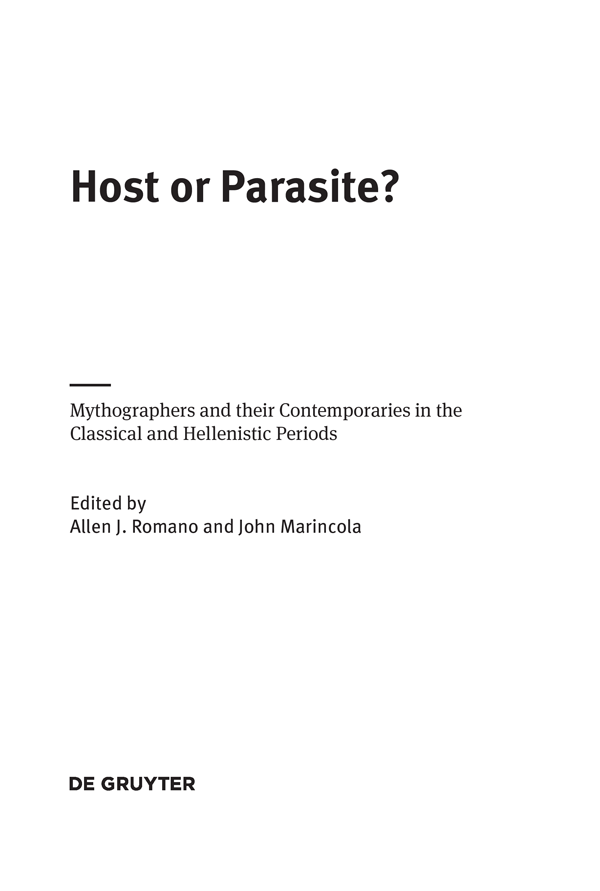
ISBN 978-3-11-067279-4
e-ISBN (PDF) 978-3-11-067282-4
e-ISBN (EPUB) 978-3-11-067285-5
ISSN 1868-4785
Library of Congress Control Number: 2019948523
Bibliographic information published by the Deutsche Nationalbibliothek
The Deutsche Nationalbibliothek lists this publication in the Deutsche Nationalbibliografie;
detailed bibliographic data are available on the Internet at http://dnb.dnb.de.
2019 Walter de Gruyter GmbH, Berlin/Boston
Editorial Office: Alessia Ferreccio and Katerina Zianna
Logo: Christopher Schneider, Laufen
www.degruyter.com
Preface
This volume collects written versions of five of the papers delivered at the conference Host or Parasite? held in February 2015 at Florida State University in Tallahassee. Since two of the speakers were unable to contribute to the printed volume, we solicited two additional papers to round out the offerings.
We are grateful to the Langford Endowment of the Classics Department at Florida State for the ability to hold the conference, and to the members and staff of the Department for their assistance in making the meeting a success. We thank Alex Lee, currently a graduate student in the Department, who served as our editorial assistant and supervised the compilation of the Bibliography, the Index Locorum, and the Index of Names and Subjects.
We are grateful to the editors of the Trends in Classics Supplements series, Franco Montanari and Antonios Rengakos, for their encouragement and for their acceptance of the volume into the series.
Allen J. Romano
John Marincola
Tallahassee, May 2019
Abbreviations
| BNJ | I. Worthington (ed.), Brills New Jacoby , online publication. |
| BNJ | I. Worthington (ed.), Brills New Jacoby , second edition, online publication. |
| CA | J.E. Powell (ed.), Collectanea Alexandrina: reliquiae minores poetarum Graecorum aetatis Ptolemaicae 323146 A.C . (Oxford, 1925). |
| CAF | T. Kock (ed.), Comicorum Atticorum Fragmenta , 3 vols (Leipzig, 18801888). |
| EGM | R.L. Fowler (ed.), Early Greek Mythography , 2 vols (Oxford 2000, 2013); fragments are cited by Fowlers number in volume 1; prefatory or commentary material is cited by volume (I, II) and page number. |
| FGrHist | F. Jacoby et al . (eds.), Die Fragmente der griechischen Historiker , 3 vols in 15 parts (Berlin/Leiden, 19231958; Leiden, 1994). |
| FRHist | T.J. Cornell (ed.), The Fragments of the Roman Historians , 3 vols (Oxford, 2013). |
| FHG | C. Mller (ed.), Fragmenta Historicorum Graecorum , 4 vols (Paris, 18781885). |
| HRR | H. Peter (ed.), Historicorum Romanorum Reliquiae , 2 vols (Stuttgart, 19142, 1906). |
| IEG | M.L. West (ed.), Iambi et Elegi Graeci , 2nd edition, 2 vols (Oxford, 19891992). |
| LCL | Loeb Classical Library. |
| PCG | R. Kassel and C. Austin (eds.), Poetae Comici Graeci , 8 vols to date (Berlin and New York, 1983). |
| PMG | D.L. Page (ed.), Poetae Melici Graeci (Oxford, 1962). |
| PMGF | M. Davies (ed.), Poetarum Melicorum Graecorum Fragmenta (Oxford, 1991). |
| TrGF | B. Snell, S. Radt, and R. Kannicht (eds.), Tragicorum Graecorum Fragmenta , 5 vols in 6 (Gttingen, 19812004). |
John Marincola and Allen J. Romano
Introduction
The last several decades have seen a remarkable flourishing in the study of mythography in the Greco-Roman world. New editions of or new commentaries on mythographic authors began to appear already in the 1980s, with more following in successive decades, and culminating in Robert Fowlers magisterial collection of the early Greek mythographers, completed in 2013. All these studies have helped to show that mythography, far from being an arid or superficial genre, was alive with scholarship and intellectual debate.
The protean status of myth in antiquity perhaps determined that mythography also would have a protean form. Indeed, although most of the mythographical works from antiquity are lost, we can nonetheless see a remarkable variety of approaches and interests even in the works that do survive or are summarised for us. The survey approach of pseudo-Apollodorus Library ,
The present volume, building on these previous studies, seeks to continue and deepen the aspects of engagement with myth that was characteristic of the Greco-Roman intellectual world by looking at the ways in which mythography interacted with other genres, or, from the opposite point of view, how writers who were not mythographers engaged with and used the elements and methods of myth and mythography in their own work. The dichotomy host or parasite refers to the different ways in which mythography could appear or be implemented in classical texts. Looked at from one point of view, mythography quarries from existing texts to create its own approach, i.e., its own genre; it analyses, comments upon, or seeks to resolve mythical stories: in this sense it is parasitical on more established works of literature such as epic or tragedy. On the other hand, the existence of mythographical works offered would-be writers a rich locus for a large body of knowledge on the mythical tradition, sometimes (often?) with a good deal of scholarly excavation to back it up: here mythography was much more the host.
In this volume we try, therefore, to bring out both roles for mythography in antiquity, in authors from Pindar to Pausanias, and over a range of genres including epic, epinician, hymn, philosophy, history, and periegetic literature. Some chapters discuss the ways in which ancient writers engaged in the study of myth employed particular techniques or approaches: Robert Fowler, for example, looks at the ways in which the Peripatetics evinced a very lively interest in mythologyand its penumbra, and in particular how Dicaearchus in his Life of Greece worked with but adapted received myths in his attempt to delineate what early Greek life was like. Ren Nnlist similarly examines how Aristarchus engaged with the vast mythical tradition of the gods and heroes when writing his commentary on Homer, using fixed but not rigid principles to try to explicate what was distinctive about Homers approach to and treatment of traditional stories. Jessica Wissmann, on the other hand, asks to what extent mythography, usually thought of as a genre more devoted to narration than explanation, concerned itself with issues of morality, with questions of good and bad, and she shows how mythography, by employing small narrative gestures or indirect characterisation or even by structural means, could give guidance to the reader about moral choices.

